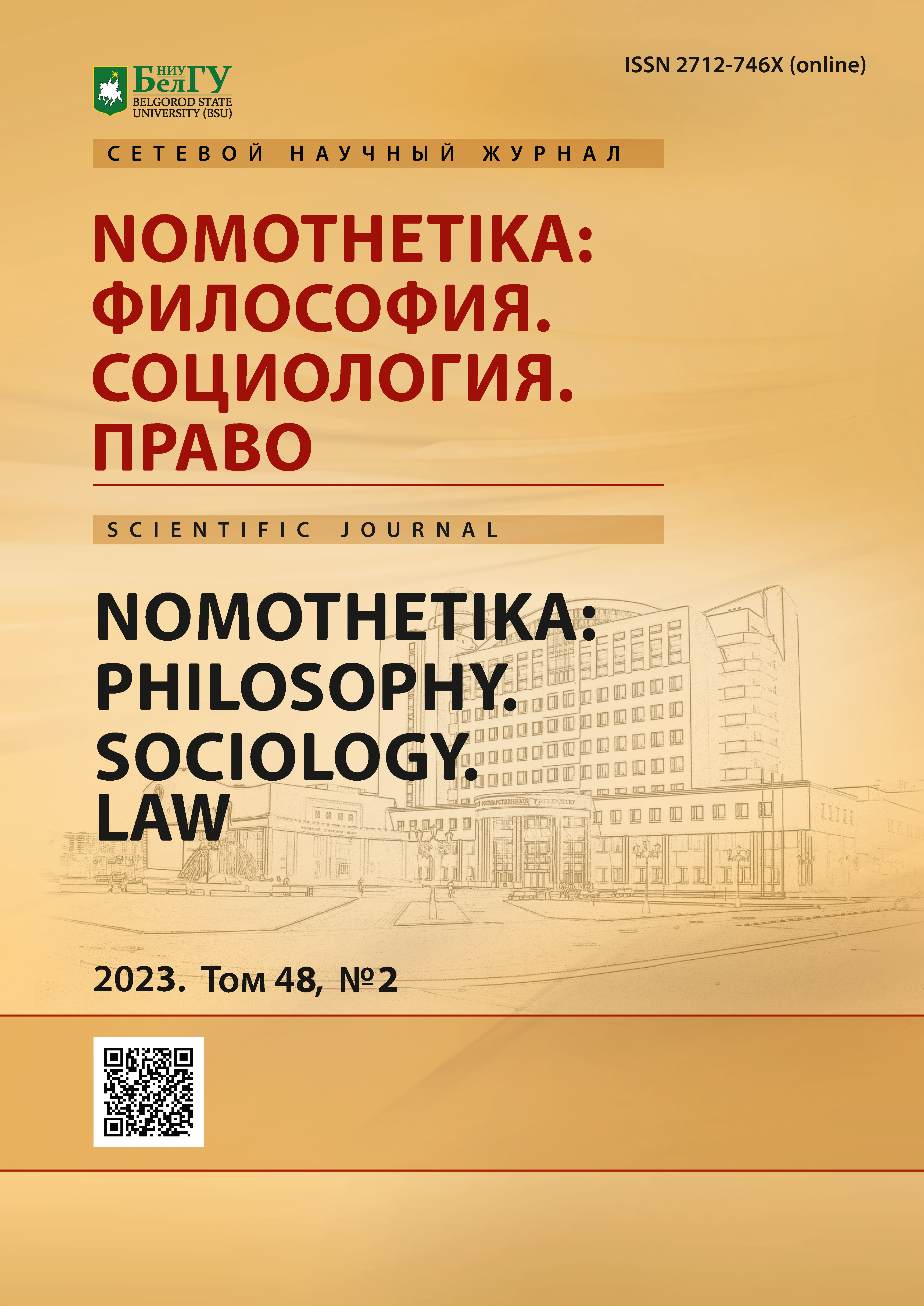About the Socio-cultural Characteristics of the Older and Younger Generations of Modern Russians
DOI:
https://doi.org/10.52575/2712-746X-2023-48-2-244-254Keywords:
generations, collectivism, individualism, indifference, types of mentalityAbstract
The purpose of the study is to test the hypothesis of significant differences in the socio-cultural traits of older and younger age-generational groups (generations) of Russians as the basis of «actual or potential tensions and conflicts in the social space». The empirical basis of the article was the materials of the author's sociological research with the respondents' assessments of the main features of different generations of Russians. The only quality that, according to the overwhelming majority of respondents, is inherent to a very small extent in both the older and younger generations is cosmopolitanism. Three types of mentality (collectivism, indifference, individualism) are inherent in the older and younger generations in very different degrees and proportions. The liberal trend associated with the process of individualization has not bypassed Russia, but the conservative trend (respectively, conservative identity) in Russia retains its relatively strong positions. The socio-cultural features (characteristics, qualities) of generational groups of Russians determine their diverse relationships, respectively, trends and prospects for the development of the whole society.
Downloads
References
Адамьянц Т.З. 2020. Актуальные смыслы современной социокультурной среды. Общественные науки и современность, 5: 121–130. DOI 10.31857/S086904990012327-1.
Александров Ю.И., Кирдина С.Г. 2012. Типы ментальности и институциональные матрицы: мультидисциплинарный подход. Социологические исследования, 8: 3–12.
Бауман З. 2005. Индивидуализированное общество. Перевод с англ. под ред. В.Л. Иноземцева. Москва: Логос: 390.
Богачева Н.В., Сивак Е.В. 2019. Мифы о «поколении Z». Москва: НИУ ВШЭ, 64 с.
Волков Ю.Г. 2022. Социокультурные травмы современного российского общества. Социологические исследования, 3: 13–23. DOI: 10.31857/S013216250017543-0
Дагаев Р.Р., Филатова Я.С. 2022. Генезис картины мира и аксиологических ценностей молодого поколения. NOMOTHETIKA: Философия. Социология. Право, 47(3): 593–600. DOI 10.52575/2712-746X-2022-47-3-593-600.
Девятко И.Ф. 2022. Genov N. The Paradigm of Social Interaction. (Routledge Advances in Sociology). London, New York: Routledge. Рец. И.Ф. Девятко. Социологические исследования, 5: 164–167. DOI 10.31857/S013216250018909-2.
Звоновский В.Б., Ходыкин А.В. 2022. Отражение культурной власти геополитического нарратива в коллективных представлениях россиян о специальной военной операции. Социологические исследования, 11: 38-53. DOI 10.31857/S013216250021524-9.
Зубок Ю.А., Чупров В.И., Любутов А.С., Сорокин О.В. 2021. Жизненные позиции молодежи: смысловые основания формирования. Вестник Института социологии, 12(3): 79–98. DOI 10.19181/vis.2021.12.3.738.
Инглхарт Р., Вельцель К. 2011. Модернизация, культурные изменения и демократия: последовательность человеческого развития. Москва: Новое издательство, 462 с.
Петрунина Д.С. 2022. «Переходное поколение»: поколенческая идентичность миллениалов. Социологические исследования, 2: 57–64. DOI 10.31857/S013216250018036-2.
Радаев В.В. 2020. Раскол поколения миллениалов: историческое и эмпирическое обоснование. (Первая часть). Социологический журнал, 26(3): 30–63. DOI 10.19181/socjour.2020.26.3.7395.
Хагуров Т.А., Остапенко А.А. 2019. Динамика мировоззренческих установок молодежи Кубани. Вестник РУДН. Серия: Социология, 19(3): 470–480. DOI 10.22363/2313-2272-2019-19-3-470–480.
Ядов В.А. 2004. Процессы идентификации российских граждан в социальном пространстве «своих» и «не своих» групп и сообществ (1999–2002 гг.). Москва: Аспект Пресс, 326 с.
Beck U. 1992. Risk Society: Towards a New Modernity. London: Sage Publications, 260 p.
Beck U. (ed.) 2014. Ulrich Beck: Pioneer in Cosmopolitan Sociology and Risk Society. Cham: Springer, 193 p. DOI 10.1007/978-3-319-04990-8
Genov N. 2018. Challenges of Individualization. London: Palgrave Macmillan, 254 p. DOI 10.1057/978-1-349-95828-3.
Genov N. 2021. The Paradigm of Social Interaction. L.; N.Y.: Routledge, 192 p. DOI 10.4324/9781003215028.
Esping-Andersen G., Sarasa S. 2002. The generational conflict reconsidered. Journal of European Social Policy, 12 (1): 5–21. DOI: https://doi.org/10.1177/0952872002012001560.
Lebedeva L.G. 2021. Attitude to the Family: Generational Aspect. In: European Proceedings of Social and Behavioural Sciences EpSBS, Value 106, Samara, Published by European Publisher, pp. 982–988. DOI 10.15405/epsbs.2021.04.02.117.
Schøyen M. A., Hvinden B. 2018. Intergenerational Solidarity and the Sustainability of State Welfare. In: Taylor-Gooby P., Leruth B. (Eds) Attitudes, Aspirations and Welfare, Palgrave Macmillan, Cham: 137–181. DOI https://doi.org/10.1007/978-3-319-75783-4_5.
Abstract views: 174
Share
Published
How to Cite
Issue
Section
Copyright (c) 2023 NOMOTHETIKA: Philosophy. Sociology. Law

This work is licensed under a Creative Commons Attribution 4.0 International License.


